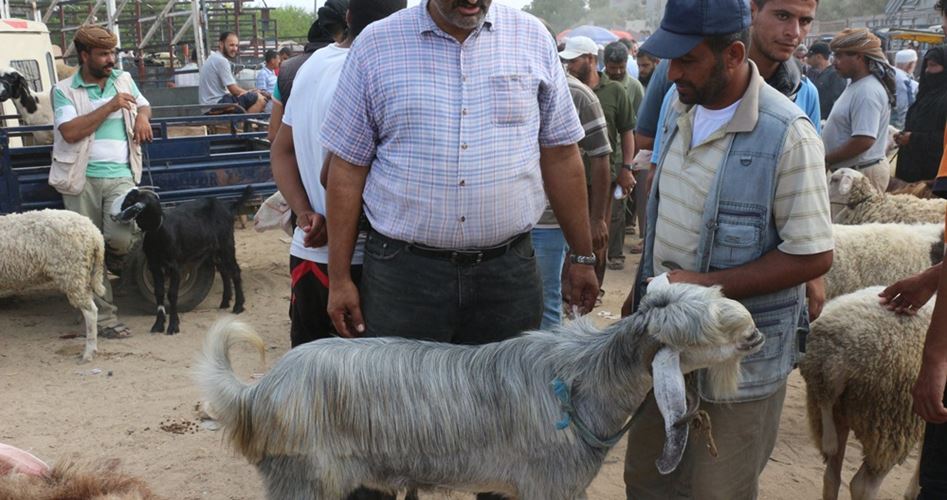A few days ahead of Eid Al-Adha the Muslim holy Day of Sacrifice Palestinian citizens in the West Bank complain about the high prices of sheep which is preferred to be slaughtered among different segments of the community both employed and unemployed.
Ahmed Abu Zeid from Nablus had a long argument with a sheep dealer who wanted 450 Jordanian dinars for one sheep. “Last year I bought it for 350 Jordanian dinars” said Abu Zeid. “Dealers claim that prices are high. One kilo is sold at 6.5 Jordanian dinars. They will not accept less than that” he added.
“The decline in the purchasing power has left a deep impact on families; many Palestinian families did not buy their sheep for sacrifice as was the case last year” said Ahmed Abu Nasser from Ramallah. “The average citizen is unable to buy the sheep at a high price demanded by dealers which is higher than prices demanded for fresh meat last year.”
Abu Nasser stressed that sheep dealers raised the prices of meat because Eid is approaching which increased the proportion of those unable to buy it and deprived charity groups from increasing their proportion of donated meat for needy families as in the previous years.
Farmer Ali Dweikat pointed out that sheep dealers are raising prices to increase their profits. “Farmers are earning very little because of the high prices of feeding the sheep and other expenses and it is the traders who control prices not farmers.”
Construction worker Massoud Harazallah wondered about the role of the Consumer Protection Association and the Ministry of National Economy and other institutions in light of their inability to confront the greed of sheep dealers who raise the prices to increase their profits.
“The feast of sacrifice comes after the end of summer the Eidul Fitir (breaking the fast) and the opening of schools. All this exhausted the budgets of the ordinary citizens who are no longer able to bear all these expenses and the issue of buying sheep for the purpose of sacrifice has become a secondary issue” employee Ghanim Abdullah complained. Despite its religious status people who can’t secure the basics for their families will not look for sheep.”
Mahmoud Al-Masri from Nablus an animal breeder stressed that raising prices is by dealers; they do not comply with the prices announced by the Ministry. Sometimes the price may reach up to seven Jordanian dinars per one kilogram of lamb taking advantage of the Eid and the large demand during the feast of sacrifice.
Al-Masri owns 200 sheep. He feeds them to be ready for slaughter and confirms that the price of one kilogram of meat has reached six and a half Jordanian dinars five days before the Eid.
“We wait for the season of sacrifice once a year. It is our chance to make up for losses throughout the year; to compensate for the high feeding prices; this season is good so far.”
According to statistics from the Palestinian Ministry of Agriculture the agricultural sector accounted for 25-35% of the Palestinian national income 25 years ago and it is declining due to lack of pasture due to settlement construction high feed prices and other factors.













